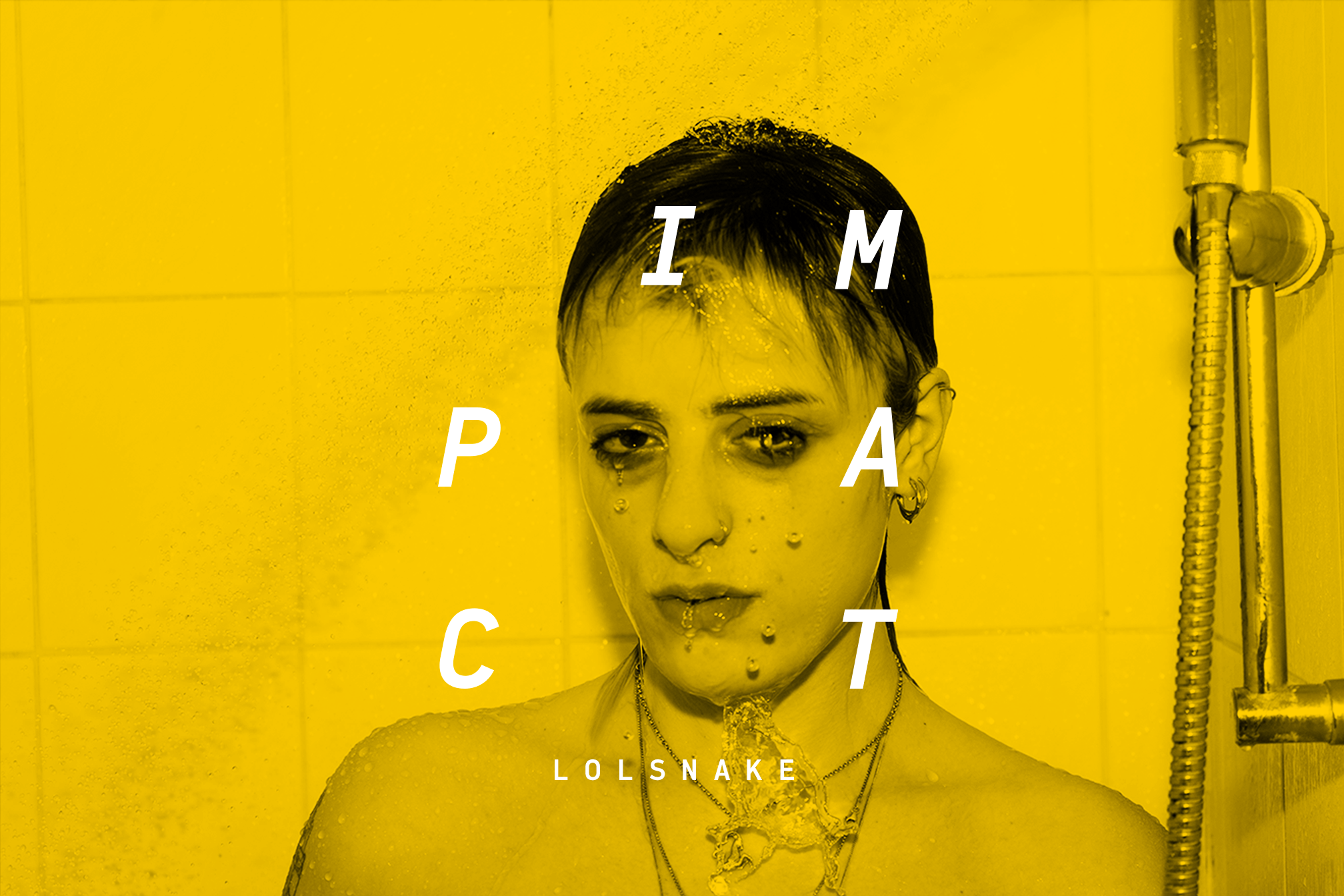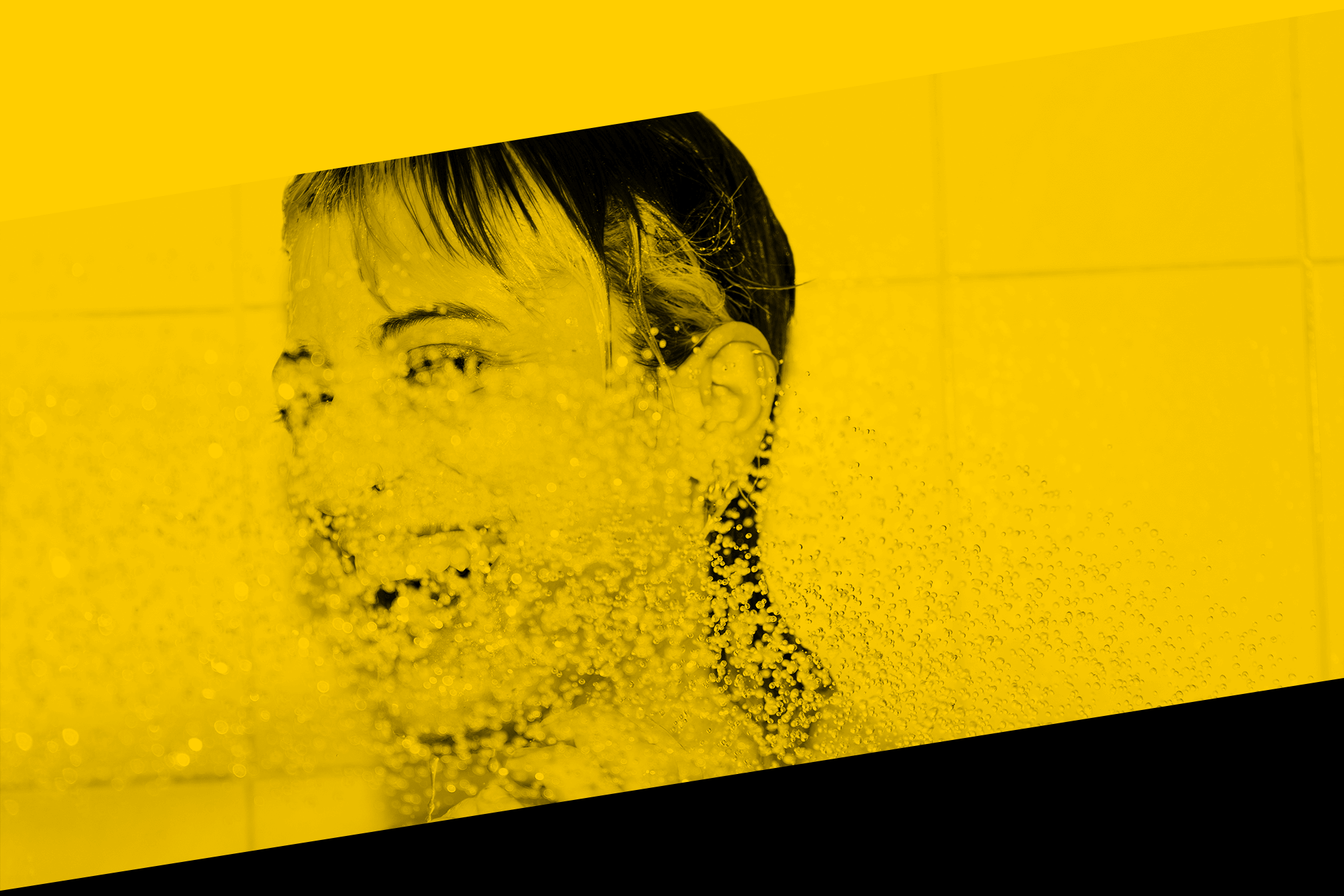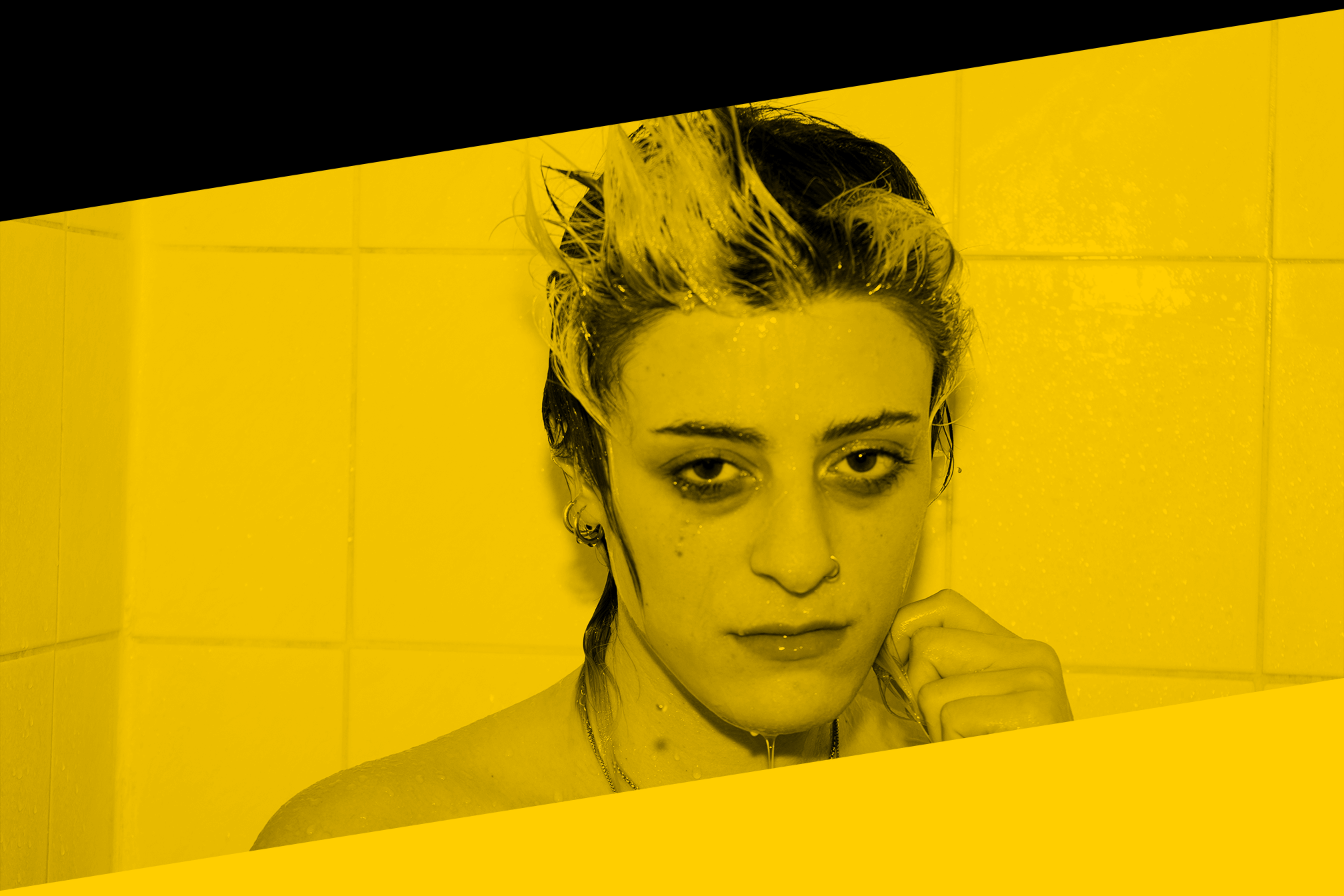 Music
Music
Playing feelings: Lolsnake’s mood-inspired DJ sets speak directly to dancefloors
Niamh Ingram speaks to Iraqi-American artist Lolsnake about communicating to crowds through music, Berlin's club scene and throwing events for weeeirdos
A Lolsnake set is a transformative experience. Known for taking her audiences through a storylike trip, it's common to meander through acid soundscapes before being jolted with a cutesy trance edit and then thrown into the deep end with searing techno bangers, all in the space of a few minutes, when she's in command of the club. Dissatisfied with treating solely Berlin to their meticulously curated sound, the DJ, artist and weeeirdos founder is now sharing her work with the world.
Oakland, California, was a difficult place to be brought up in the early '90s for the now Berlin-based multihyphenate, who uses she/they pronouns. “There was a lot of gang violence and a lot of drugs on the streets. My childhood home had the windows boarded up, in case there were shootings or robberies which were happening pretty much on the regular in the zone,” she recalls. “We didn’t have much money and there were times where my brother and I had to sleep in my dad’s car when there was no one to look after us. We didn’t have any family in the States.”
Growing up with an unshakeable feeling of otherness - often faced with Islamophobia and death threats due to her Iraqi heritage - Lolsnake’s tumultuous experiences intensified in 2003 when the United States invaded her parents’ country. “When I would go to councillors in school, they’d sit me down with people who’d give me death threats and make me confront them. People would often just be like: ‘this is how I was raised’. It was Islamophobia. People would tell me that I should go back to Iraq, and I was born in California.”
Music was medicinal — an attempt at drowning out her harrowing day-to-day experiences. While often confined to being at home, her parents’ efforts to take her to music lessons and learn the clarinet combined with growing up against the backdrop of Middle Eastern pop and folk tapes played “on repeat” sparked an keen interest into playing with sound. Like many of their peers, Lolsnake would often record their favourite songs onto personal tapes, wherever they could access music. “I couldn’t afford to buy CDs or music at the time so I had whatever was accessible to me.”
Uncovering her love for electronic music was a “natural progression”, with the DJ hugely grateful for the arrival of the Internet and its part in her bubbling passion for club sounds. “At the time I wasn’t really connecting to a lot of pop music so I found some niches through social media. I suppose that’s how it all started.” YouTube and Myspace, she notes, were key players in her early-stage discovery methods (with the former still useful today).
A career in music, though, was unthinkable. From growing up in circumstances where there was little potential to explore what you truly enjoy, to feeling a need to meet familial expectations, working in any artistic capacity was merely a farfetched thought. “I’m an artist and I had to pursue going into sciences to have the approval of my parents to leave my family home,” she explains. A move to Manchester in 2010 to study neuroscience broke these previous confines, with a hobby soon shifting into a blossoming music career. “It was only really until I left home I started going out and found a lot of influences in dance music culture.”
Now based in Berlin, and having lived in the techno hotspot for some years now, Lolsnake is able to truly articulate their authentic self both musically and personally. Check out the full interview and their Impact mix, inspired by the moodiness of Berlin winter, below.

After studying in the UK for four years, you moved to Berlin: how did you find the shift in club cultures?
When I was studying, I was going out to a lot of concerts, parties, raves and shows that turned into parties. We’d go to Liverpool and more undergroundy things, but the thing is the underground was not so frequent. I didn’t necessarily want to go to more commercial parties because I don’t feel necessarily safe at these events and they’d finish early. I was super young and really uncomfortable in more commercial places but we did have some really cute underground parties, [and] art spaces also. The ‘going out’ was where you’d buy tickets, and you would plan in advance, and there was only one thing happening that I was interested in every two, three weeks. It was less frequent but we’d always find something to do.
In Berlin, however, it felt like I was having nightlife for real. We have the luxury of hundreds of clubs; we have clubs in the city which could be the biggest in another city but in Berlin it’s whatever – another small venue here. There's an audience for it: the audience here is more mature, clubbing is not like something you do in your early twenties. People are really passionate about music and I think on another hand, the Berlin club scene has these ‘safe spaces’. They’re not perfect ‘safe spaces’ – it’s not a walk in the park where you’re like “nothing bad could possibly happen”, but there is the privacy of having a no photos policy. No one needs to know you went out, there is no prejudgement when meeting colleagues or friends. Everyone is there for the same reason - at least for the most part - being music loving.
You’ve spoken about Berghain being so pivotal in forming so many relationships in the city, alongside other clubs. What do you think it is about Berlin that makes it so easy to nurture these bonds and create communities?
Sometimes when you have a busy life, especially when you’ve been wanting to meet specific friends but there’s maybe not been the time to do so, you’ll always at some point see them on the afternoon at that club. You’ll catch up and create bonds over the years.
There’s a sense of freedom and openness that you can’t find anywhere else - at least from my experience - where I feel like a big part of the queer community (and not necessarily just the queer community, but also the partygoing community) in Berlin have this tinge of ‘otherness’ that they may have felt, whether they were too nerdy, or had experiences like mine, or simply didn’t fit into wherever they were from. So, we all find ourselves in a little pot of club culture. I think there’s this understanding of each other and again there’s no pre-judge in that regard, no pretentiousness and snobbiness. It’s really at a minimum here. If you want to have a little freak out dance on the dancefloor, nobody is going to be like: “oh my god, what are they doing”, you know? It makes you wanna go back, and is very much a social space. Personally, I can just let loose and because of the opening times, the party is not ending. You can have a moment to really listen to music but then you can also spend two hours having a deep conversation with someone that you know, or an acquaintance you didn’t know so well but you can sit down in the club and have all the time in the world. You really, over the years, establish bonds in that way and I think that’s really special.
Community is important. I’m grateful for people being very open and giving opportunities, and not gatekeeping. People I worked with have given me opportunities and support and I really appreciate it. There are good people out there!
Read this next: How to have the perfect 24 hours in Berlin
I find it interesting how your first experiences of outwardly DJing - aside from the occasional low-profile rave - came hand in hand with the launch of your event, weeeirdos. How did the party come about?
At the time I had taken a short pause in partying too hard. I go to so many things: DIY shows, big parties – I just have a wide interest in music. There was a period where I was not partying - a short period - and a friend of mine called me, who was a small promoter in town who promotes more concerts and whatnot. I used to go to his shows a lot. He called me and was like “Danielle, I’m out of town, would you be interested in putting on an event?” I was like: “Er, what?”. I was younger, and not so secure, I never thought I could possibly do something like that. I agreed to it, and was like, why not? So then I asked three other friends to play at this concert. It was just a concert, maybe a DJ afterwards, and at the time I didn’t play. I invited everyone and it was really cute because I do a lot of drawing, painting, and make all the posters and visual graphics for my parties, so it was really nice to combine that as party promotion also. I did that at a DIY space here [in Berlin] called Internet Explorer and I was so nervous about risking 100 euros. I asked the artist to take the door split and everything was community focused. I was scared and that party happened, but because I had been going out and met so many nice connections in club culture there was a community that I had around me who came to the show and were supportive.
It was such a success and I felt really excited and got really hungry, so immediately after the party I was really pushy. I sent a million emails to so many different venues that I would’ve liked to work with and it was then that I found a rave location. Those parties, I was doing the bookings more to be FLINTA-orientated, having a preference on FLINTA [people who identify as Female, Lesbian, Intersex, Non-binary, Trans and Agender/Asexual], but including people that I respected in the scene and underground artists. We had Cera Khin and VTSS play the early parties, promoting and pushing people like that, a few years ago. Also, a lot of first-timer DJs, myself included.
When I started DJing it was really special to have those closing hours of a few friends left at the party just vibing and playing to them, that was really inspiring. I was working so much, so hungry to do more and it gave me so much pleasure. I was doing monthly concerts, promoting not necessarily electronic music, and doing raves, doing parties, eventually moving to OHM in 2018. It was quite nomadic. I did an event series called queeeirdos that I started with a friend of mine, which was spoken word and performance art. That was very nice because I just wanted to create spaces that were reimagining the event format. In the UK I was going to at least three shows a week and in Berlin the same, constantly out. I was more or less wanting to bring a new take on events in that regard and get time for myself and the community around me. It was really hectic as I was DJing at bars, had a part-time job doing bookings for a small venue here, the list continues. All of these things just didn’t pay so well, so I was hustling: I loved what I was doing, and it was all around nightlife, where I wanted to be.

So how did you begin to craft your own individual sound as a DJ?
Over time, with constant digging! I dig mostly online through Bandcamp, Discogs, YouTube, SoundCloud, just everywhere. Going out, listening to music, exchanging libraries with friends and other music lovers. Playing music to my friends for hours, sharing songs that we love. For me it was really important to learn how to archive music that was for mood and through references. Whether the references are based on year, or genre, or whatever. These are the playlists that I go back to. With my sound, I think it was time over the years that made me get everything tight and together. I play music exactly how I feel and it’s hard to find music that hits you in that way; it really was just [a case of] time and collecting over time, I’ll spend hours in a rabbit hole everyday. It’s great that I get to do it for my job because sometimes I can just nerd out and not feel bad about it.
When I was starting to DJ I was playing more niche tracks, things like a really deep cut of trance or techno that I was obsessed with. I realised that during my sets, and also as a partygoer, there’s got to be that one known track that I can connect with. I’ll be like: “that person played ‘The Bells’ in Berghain, and that was a moment!”. It’s a memorable thing as a partygoer to have these known tracks that we all love. In the beginning I didn’t necessarily play those things but I realised over time that you do have to connect your audience. Play the niche tracks for the niche heads, but also play the bigger tracks that are known by everyone who don’t necessarily dig so deeply. They’re still music loving but appreciate the moments where they feel they’re being spoken to. As a DJ, you have to keep the audience in mind as well as your own artistic interests. I like to take people on a journey with my sound and it’s not necessarily just through genres - which I do - it’s also a journey through moods, references and moments in time, somehow.
What are you like as a partygoer now you’re a DJ? Do you think it’s changed you in any way?
Not in the sense that I still love going to parties. But I’m listening so much more deeply. I go for a shorter amount of time, I don’t stay forever at the party anymore but I do still very much enjoy connecting to other perspectives of music. I love listening to a cute house set, seeing how other DJs create atmosphere and room. It’s really sad because of course there’s this trade off where, especially if I’m playing another city, I have to stay in the hotel room before my sets to keep myself in a mood and a good zone, making sure my energy is in the right place and maybe only staying a couple hours after. You don’t necessarily have this longform ‘going out’ feeling where you can deeply listen to music. I’m left with Sundays where I can get time off and go to Berghain or wherever is available at that time, and still connect through the dancefloor and have a good dance.
You mention Berghain – you’ve played there a few times now. Does it ever feel like a full-circle moment, returning to the place that helped you find a sense of home?
Yes! Absolutely.
Did I see something where the fire alarm went off during one of your sets there recently?
It was during CTM, yes. I had this deep concern [when it happened]. Luckily nobody was harmed, there was no fire and of course they did evacuate quickly out of the building and whatnot. That was unfortunate, but I was fearing something because it has never really happened. It was very surreal!
Read this next: CTM is the inspiring festival dance music needs
What’s next for you, creatively?
That is a good question! In the short run, I’m currently working on the mood and journey for my next Klubnacht at Berghain. I really want to set a tone and get people into a nice four hour listening experience. It’s such a pleasure to be able to craft a set that is going for so long in a space I know so well, and for me is very creative. The other things will be announced soon, I guess – there’s a few things in the pipeline.
Can you tell us about your Impact mix?
Well one thing I can definitely say is that I love how moody I feel in Berlin during the winters as the vibe really transfers into my music and how I play. This hour long recording is a short journey into those moods and has some nice emotional gems and plenty of twists and turns. Wrapping up the set with ‘Silent Shout’ by The Knife is quite special to me. I'm happy I found a place for it as this band was crazy influential to me after discovering them when I was 14. I really looked up to them as they have been for a long time pushing the queer agenda through their music and performances. Hope you enjoy it!
Tracklist:
O Superman - Laurie Anderson
Phantom Studies - Dettman & Klock
Outside the lines - Christopher Joseph
On and On - Mellow Trax
Cerritulus (Elad Magdasi) - Joel Mull
Stardust - Tadeo
Green Militia - Möd3rn
Lights Out - Viers
Dimmer - Audio Injection
Septh 5 Arp Dub - Kill Ref
Vermillion 03 - Ignez & Rødhad
Stuck in a Machine (Maxx Rossi Remix) - Makornik
Instacord - Skream
Section 2 (Alan Fitzpatrick Edit - Mark Broom Feat Trax
Cheap Thrills - Adam Jay
A Messias Is Born (third wife remix) - Hussar
Gratitude Practice - DJ Gigola
Night Journeys (DJ IBON Remix) - Courtesy
Tenshun - Dax J
In from the Night (Adam Beyer Remix) - Planetary Assault Systems
Joshua and Goliath (Techno version) - Paula Temple
Silent Shout - The Knife
Velvet - I Hate Models


